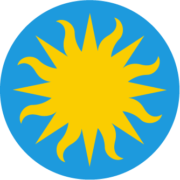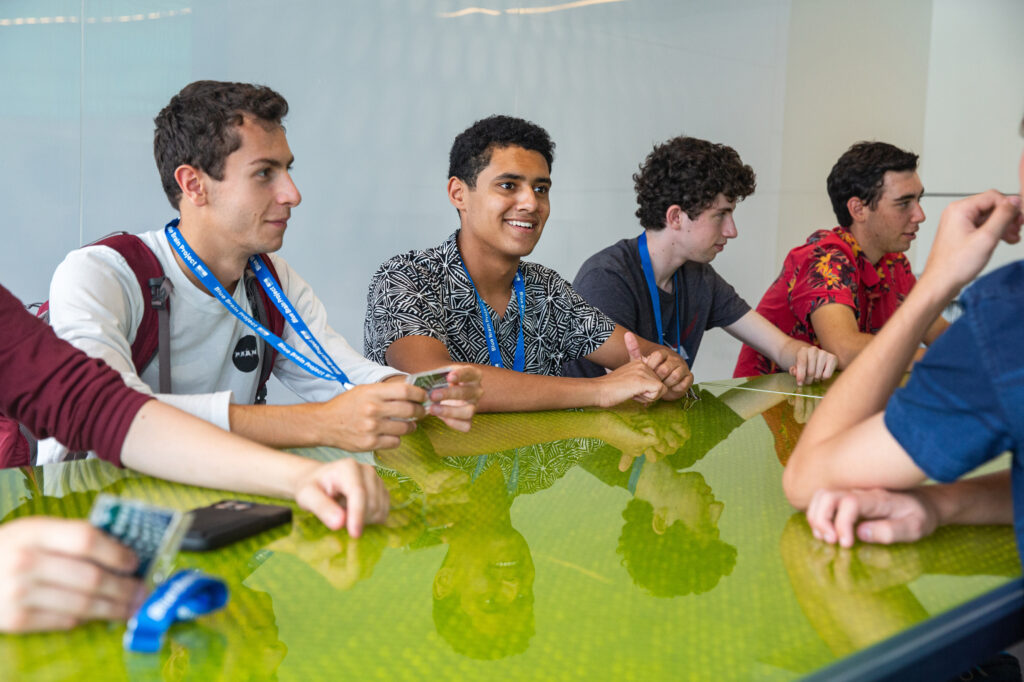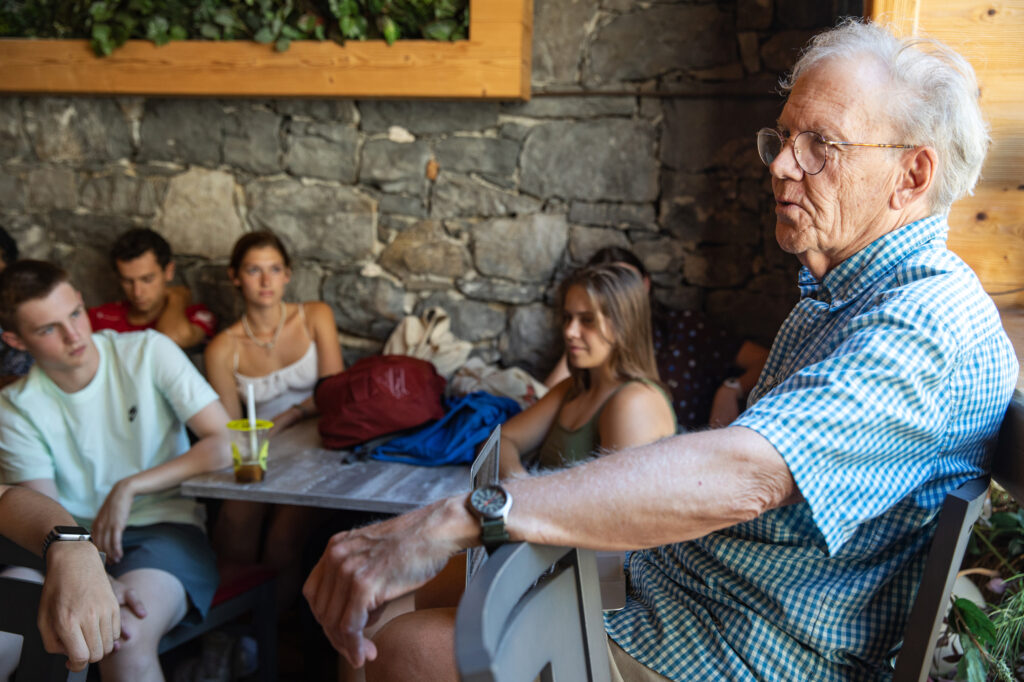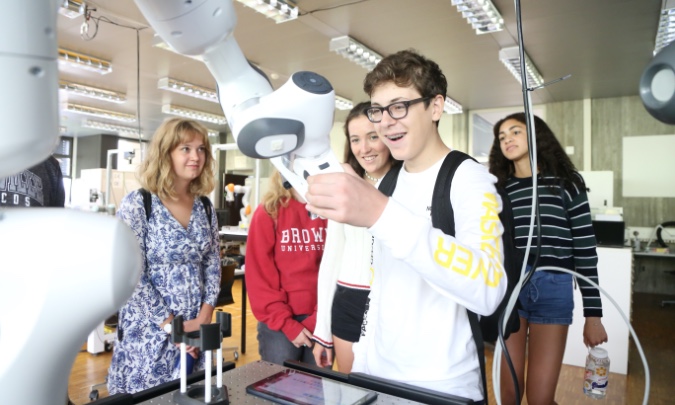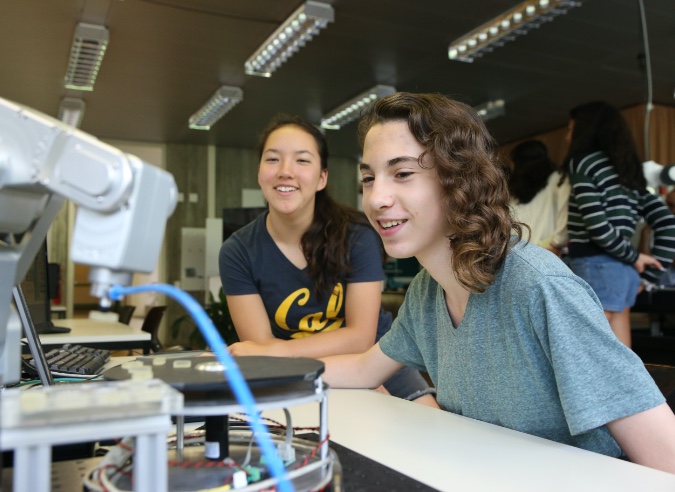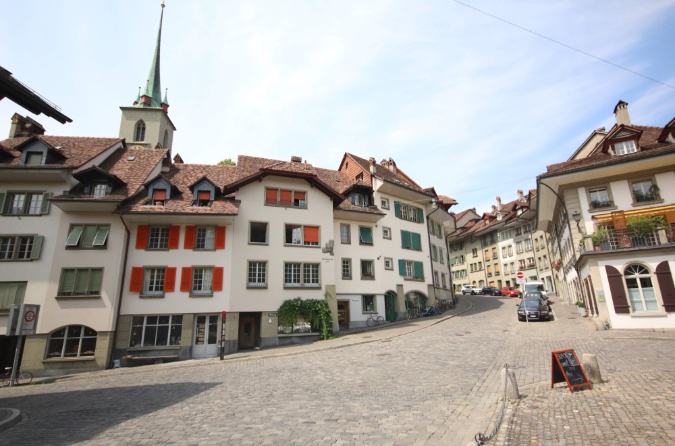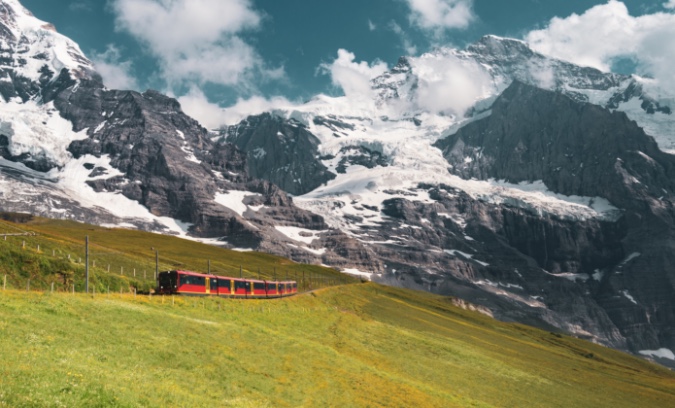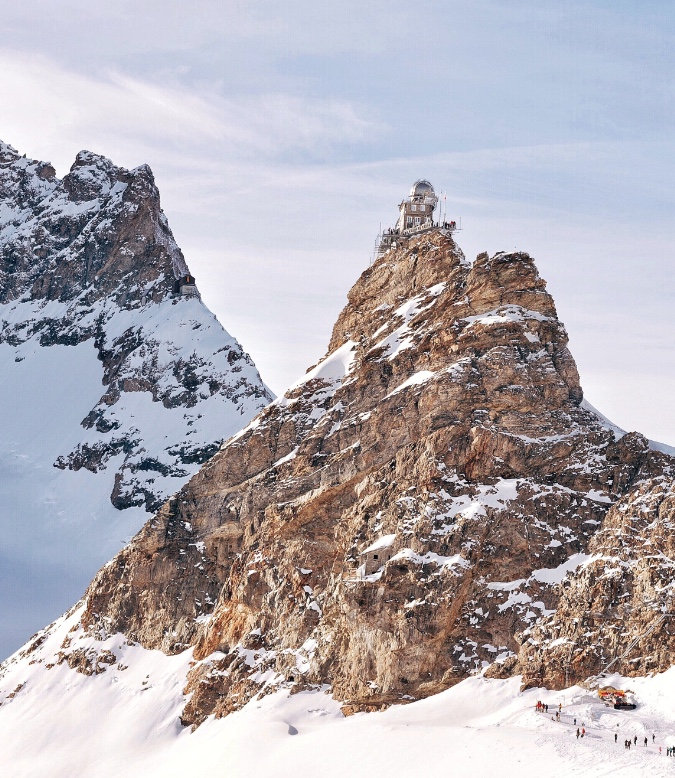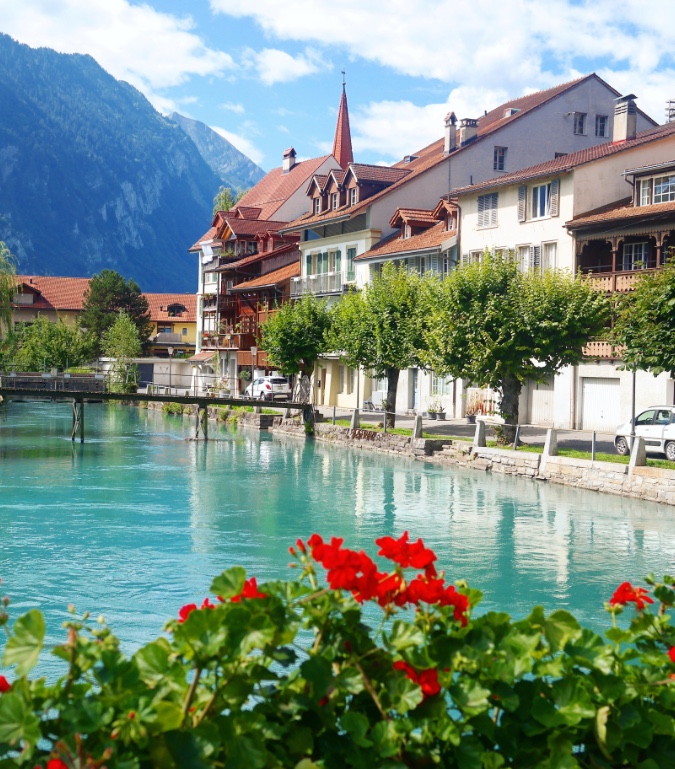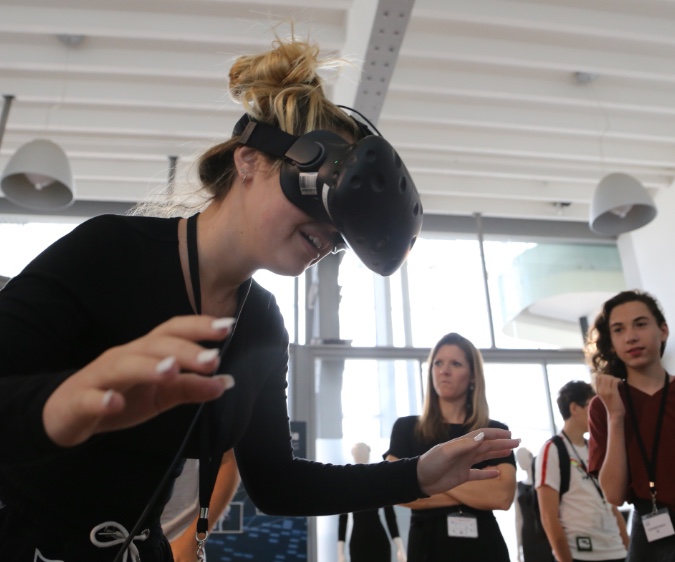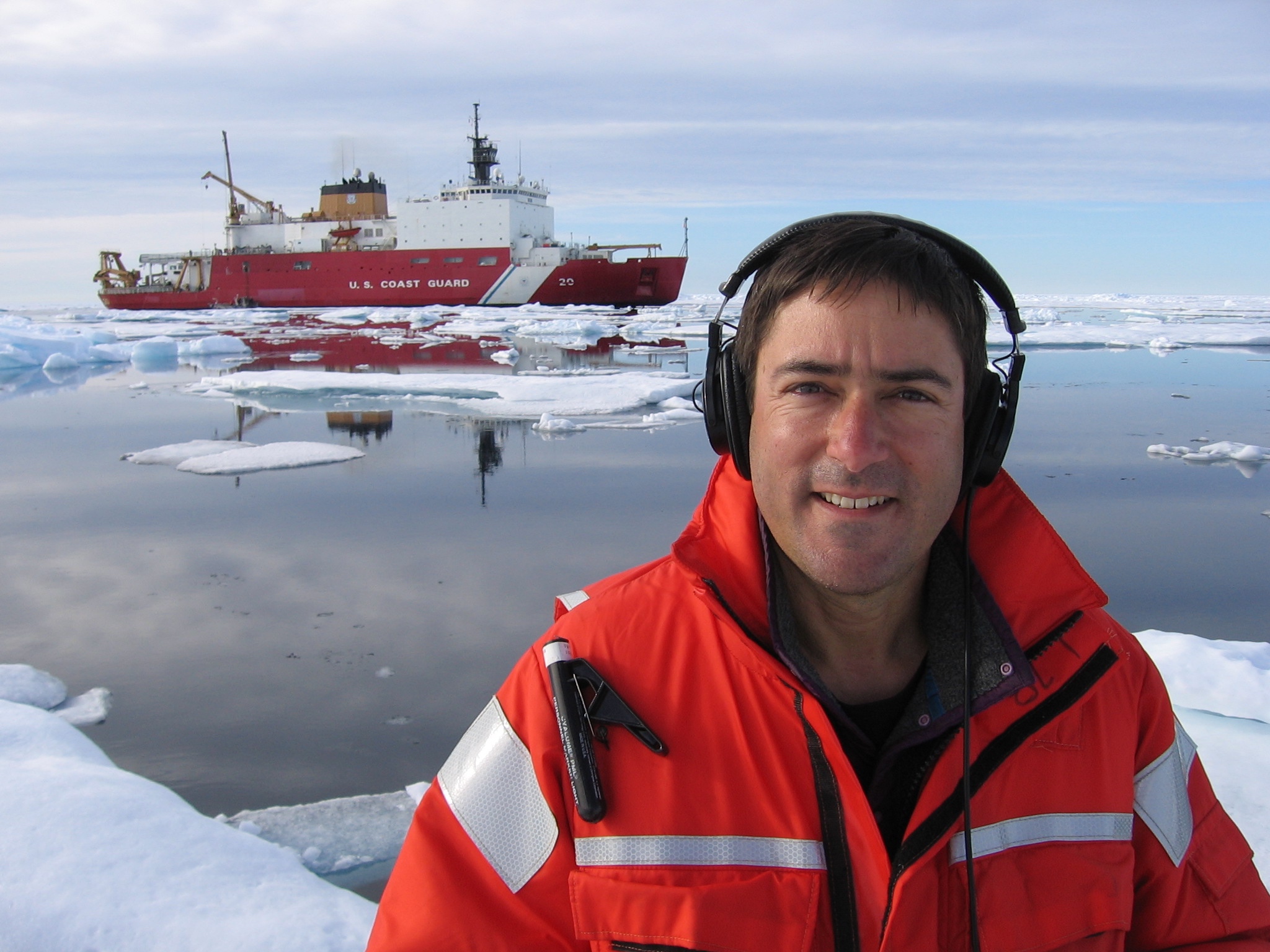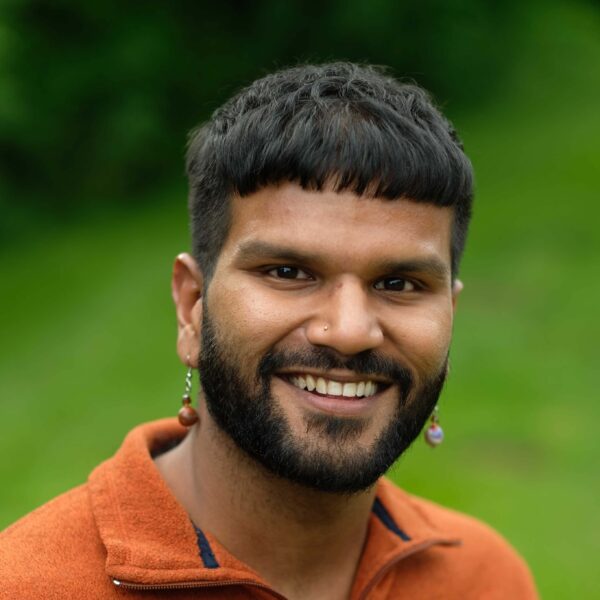Switzerland
CERN & the Future of Science
Immerse yourself in diverse and cutting-edge scientific research this summer in three distinct regions of Switzerland, a country renowned for its cultural offerings, dramatic landscapes, and leading laboratories. On this high school travel program, meet with researchers in physics, biotechnology, astronomy, and climate science. See firsthand how their work is addressing some of the world’s most pressing challenges, expand your understanding of scientific advances, and explore possible career paths in science and technology.
- Highlights
• Raft down the River Lütschine into the turquoise Interlaken
• Work alongside robotics researchers at the Bern University of Applied Sciences
• Meet with climate scientists at the Jungfraujoch
Experts
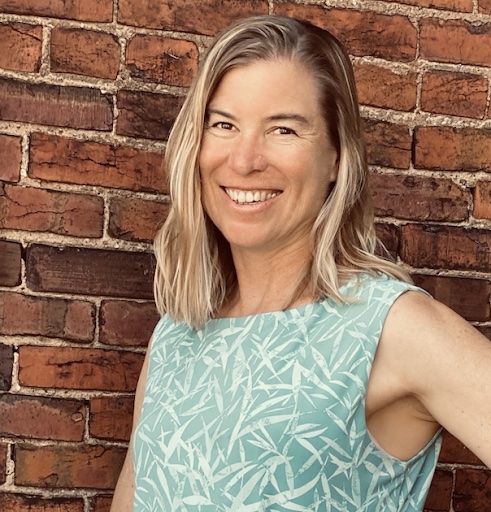
Itinerary
This itinerary represents our best projection of the group’s schedule. However, we may implement changes designed to improve the quality of the program.
Meet your fellow high school student travelers and one or more of your leaders in New York, and fly together to Geneva, Switzerland. To learn more about how we organize travel, click here.
Begin in Geneva and get to know your peers and leaders with a group orientation. Then dive into the world of physics with a visit to the European Organization for Nuclear Research, known as CERN, home of the Large Hadron Collider particle accelerator, and birthplace of the World Wide Web. Visit biogen labs at Campus Biotech to understand the future meshing of carbon-based biology and silicon-based technology, and then dip into Swiss culture with a hands-on chocolate workshop with a world-class pastry chef. Go behind the scenes at the headquarters of the United Nations, and learn how science innovation impacts and shapes policy on a global scale.
Travel east to learn from professors at the Bern University of Applied Sciences about robotics. Delve into the latest theories behind technology-enhanced communication and how humans communicate with robots. Discuss the human brain’s attempts to keep up with the evolution and performance of the machines we’ve invented, while exploring spaces designed for optimum collaboration between robotic and human workers.
Slow down and relax on the shores of Interlaken, two lakes joined by the Aare River and ringed by snow-covered peaks. Explore the nearby valley by bicycle, ride on the elegantly engineered Schilthorn Cableway, or raft down the rapids of the River Lütschine. Then ascend by train to the Jungfraujoch, the highest railway station in Europe. Here, with the dramatic Jungfrau and Eiger peaks as a backdrop, meet with climate scientists who research the effects of climate change on the Alps’ glaciers. Take an evening trip to a nearby high-elevation observatory for an astronomy discussion and observation of celestial bodies. Present your independent project to your group and enjoy a final celebratory meal, reflecting on your experiences together and what you’ve learned.
Fly from Geneva, Switzerland, to New York with your group and a leader, then continue on to your final destination. To learn more about how we organize travel, click here.
Itinerary
This itinerary represents our best projection of the group’s schedule. However, we may implement changes designed to improve the quality of the program.
Meet your fellow high school student travelers and one or more of your leaders in New York, and fly together to Geneva, Switzerland. To learn more about how we organize travel, click here.
Begin in Geneva and get to know your peers and leaders with a group orientation. Then dive into the world of physics with a visit to the European Organization for Nuclear Research, known as CERN, home of the Large Hadron Collider particle accelerator, and birthplace of the World Wide Web. Visit biogen labs at Campus Biotech to understand the future meshing of carbon-based biology and silicon-based technology, and then dip into Swiss culture with a hands-on chocolate workshop with a world-class pastry chef. Go behind the scenes at the headquarters of the United Nations, and learn how science innovation impacts and shapes policy on a global scale.
Travel east to learn from professors at the Bern University of Applied Sciences about robotics. Delve into the latest theories behind technology-enhanced communication and how humans communicate with robots. Discuss the human brain’s attempts to keep up with the evolution and performance of the machines we’ve invented, while exploring spaces designed for optimum collaboration between robotic and human workers.
Slow down and relax on the shores of Interlaken, two lakes joined by the Aare River and ringed by snow-covered peaks. Explore the nearby valley by bicycle, ride on the elegantly engineered Schilthorn Cableway, or raft down the rapids of the River Lütschine. Then ascend by train to the Jungfraujoch, the highest railway station in Europe. Here, with the dramatic Jungfrau and Eiger peaks as a backdrop, meet with climate scientists who research the effects of climate change on the Alps’ glaciers. Take an evening trip to a nearby high-elevation observatory for an astronomy discussion and observation of celestial bodies. Present your independent project to your group and enjoy a final celebratory meal, reflecting on your experiences together and what you’ve learned.
Fly from Geneva, Switzerland, to New York with your group and a leader, then continue on to your final destination. To learn more about how we organize travel, click here.
Leaders
Meet some of our featured leaders. Please note that these may not be your leaders for the program.
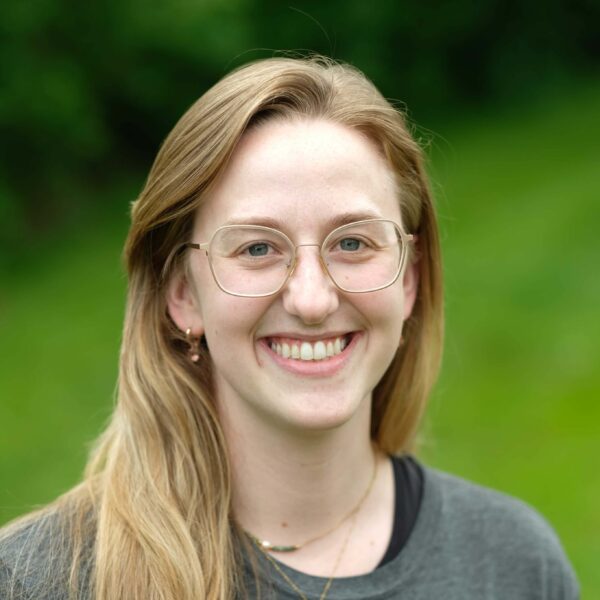
Leaders
Meet some of our featured leaders. Please note that these may not be your leaders for the program.

Perhaps known best for its stunning lakes and snowcapped mountains, Switzerland is also home to renowned scientific laboratories addressing the world’s most pressing problems. Landlocked at the crossroads of Western and Eastern Europe, the country boasts incredible diversity linguistically with four national languages, and culturally, with strong influences from Italy, Germany, and France, as well as a rapidly growing immigrant population from all over the world.
Switzerland has four national languages: French, German, Italian, and Romansh.
Summer weather in Switzerland is generally pleasant and warm. Average daytime temperatures range from 80–90°F (65–75°F in the mountains), while nighttime temperatures average 60–70°F (50–60°F in the mountains).
Swiss cuisine features myriad culinary styles and regional influences, in particular from Germany, France, and northern Italy. Enjoy raclette, fondue, and rösti, pasta and pizza, and many other specialties that reflect the diverse cultural composition of the country.
Perhaps known best for its stunning lakes and snowcapped mountains, Switzerland is also home to renowned scientific laboratories addressing the world’s most pressing problems. Landlocked at the crossroads of Western and Eastern Europe, the country boasts incredible diversity linguistically with four national languages, and culturally, with strong influences from Italy, Germany, and France, as well as a rapidly growing immigrant population from all over the world.
Switzerland has four national languages: French, German, Italian, and Romansh.
Summer weather in Switzerland is generally pleasant and warm. Average daytime temperatures range from 80–90°F (65–75°F in the mountains), while nighttime temperatures average 60–70°F (50–60°F in the mountains).
Swiss cuisine features myriad culinary styles and regional influences, in particular from Germany, France, and northern Italy. Enjoy raclette, fondue, and rösti, pasta and pizza, and many other specialties that reflect the diverse cultural composition of the country.
What to Expect
Review specific program expectations here. For more general information:
Physics, Biology, and Robotics: Throughout your program in Switzerland, you will interact daily with researchers, instructors, and university students in their various scientific fields. The labs we visit are expressly committed to science education, and the researchers we meet are excited to work with students, passionate about their fields, and committed to educating the next generation of science leaders, particularly from underrepresented groups. A typical day will involve a laboratory visit followed by a hands-on activity designed to immerse you in the scientists’ work. Scientists will often join us for a meal, coffee, or small-group discussion after our visit, when a more informal talk about a life in science is possible.
In addition to the topics explored during daily activities and workshops, students pursue an independent project that allows you to delve deeper into a scientific subject that interests you. Explore the ethical implications of artificial intelligence research or create a blog featuring interviews with particle physicists. Analyze technology used to replace damaged neurological tissue or develop a podcast episode describing the effects of climate change on snowpack in the Alps.
Proficiency in French or Swiss German is not required, however students who study these languages in school will have opportunities to practice while communicating with local people. Students who don’t speak French or Swiss German will have the opportunity to learn some basic language skills.
To encourage full engagement and immersion in the Putney travel experience, we limit the use of cell phones and other devices on our High School programs. Students are allowed to use their phones in transit to the program, and keep their devices throughout. During in-country orientation, leaders will lock phones with a code, unlocking them for the second half of the program. During the tech-free portion of the program, students have the opportunity for a weekly call home according to a pre-arranged schedule. For more details, please see our FAQ.
This is a physically active summer travel program. You do not need to be at peak fitness to participate, but it is important that you have a desire to be physically active, and that you are excited about trying all activities, including rafting, hiking, and city walking.
This program visits high altitude destinations—the group will spend one day at elevations over 11,000 feet/3,353 meters while visiting the Jungfraujoch, and may hike at elevations around 10,000 feet/3,048 meters on other occasions.
Throughout our time in Switzerland, the group stays in small family-run hotels and inns within walking distance of parks, restaurants, and museums. In Geneva, our home is a small hotel in a quiet neighborhood near Lake Geneva; in Bern, a comfortable hostel just outside of the Old Town; and in Interlaken, a cozy and classically Swiss family-run hotel.
Breakfast is always taken at our hotel. Other meals are eaten at restaurants or picnic style, depending on the day’s activities.
What to Expect
Review specific program expectations here. For more general information:
Physics, Biology, and Robotics: Throughout your program in Switzerland, you will interact daily with researchers, instructors, and university students in their various scientific fields. The labs we visit are expressly committed to science education, and the researchers we meet are excited to work with students, passionate about their fields, and committed to educating the next generation of science leaders, particularly from underrepresented groups. A typical day will involve a laboratory visit followed by a hands-on activity designed to immerse you in the scientists’ work. Scientists will often join us for a meal, coffee, or small-group discussion after our visit, when a more informal talk about a life in science is possible.
In addition to the topics explored during daily activities and workshops, students pursue an independent project that allows you to delve deeper into a scientific subject that interests you. Explore the ethical implications of artificial intelligence research or create a blog featuring interviews with particle physicists. Analyze technology used to replace damaged neurological tissue or develop a podcast episode describing the effects of climate change on snowpack in the Alps.
Proficiency in French or Swiss German is not required, however students who study these languages in school will have opportunities to practice while communicating with local people. Students who don’t speak French or Swiss German will have the opportunity to learn some basic language skills.
To encourage full engagement and immersion in the Putney travel experience, we limit the use of cell phones and other devices on our High School programs. Students are allowed to use their phones in transit to the program, and keep their devices throughout. During in-country orientation, leaders will lock phones with a code, unlocking them for the second half of the program. During the tech-free portion of the program, students have the opportunity for a weekly call home according to a pre-arranged schedule. For more details, please see our FAQ.
This is a physically active summer travel program. You do not need to be at peak fitness to participate, but it is important that you have a desire to be physically active, and that you are excited about trying all activities, including rafting, hiking, and city walking.
This program visits high altitude destinations—the group will spend one day at elevations over 11,000 feet/3,353 meters while visiting the Jungfraujoch, and may hike at elevations around 10,000 feet/3,048 meters on other occasions.
Throughout our time in Switzerland, the group stays in small family-run hotels and inns within walking distance of parks, restaurants, and museums. In Geneva, our home is a small hotel in a quiet neighborhood near Lake Geneva; in Bern, a comfortable hostel just outside of the Old Town; and in Interlaken, a cozy and classically Swiss family-run hotel.
Breakfast is always taken at our hotel. Other meals are eaten at restaurants or picnic style, depending on the day’s activities.
A Day in the Life: Geneva
- Morning
- Afternoon
- Evening
A Day in the Life:
Geneva
- Morning
- Afternoon
- Evening

Program Directed by
If you have questions or would like to talk further about this program, please get in touch!

